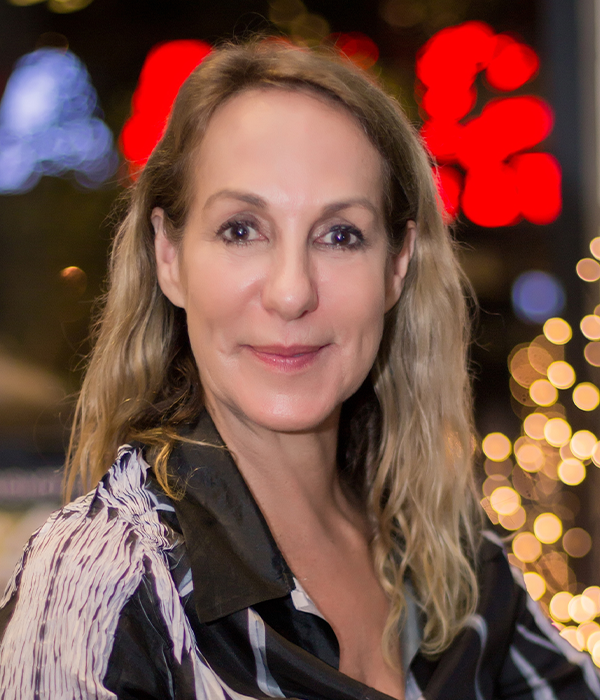Industry
Spotlight
 Riding the Pilates Wave: Lessons From Scaling an Industry
Riding the Pilates Wave: Lessons From Scaling an Industry

...As AI systems begin to inform lifestyle decisions, it’s critical that they are guided by qualified professionals—not algorithms optimized purely for profit. Ethics, transparency, and human oversight must be non-negotiable.

 AI: A Future of Collaboration, Not Replacement
AI: A Future of Collaboration, Not Replacement
For now, the fitness industry—like most others—stands on the edge of an exciting new era. Artificial intelligence isn’t here to make humans obsolete; rather, it holds the potential to elevate the role of coaches, trainers, and health professionals by handling what we can’t always keep up with: data overload, hyper-personalization, and 24/7 responsiveness.
The relationship should be symbiotic. AI supplies the insights, automates the admin, and offers real-time suggestions. Human professionals provide what AI cannot: empathy, context, adaptability, and the human-to-human connection that keeps people inspired and on track.
Nowhere is this potential more profound than in aquatic wellness, where digital tools and intelligent programming are finally beginning to meet the needs of overstretched teams and underused facilities. For example, new visual fitness platforms allow instructors to deliver high-quality aqua workouts via waterproof screens or poolside projectors—eliminating the barrier of limited staff and inconsistent delivery. These AI-guided systems deliver safe, effective routines, even without a coach present.
In therapeutic environments, digital aqua therapy—delivered through waterproof tablets or smart screens—offers tailored rehab plans that adapt in real-time based on user input or biometric feedback. This is a breakthrough for facilities facing staffing challenges, enabling consistency, inclusivity, and scalability across demographics.
But amid these innovations, training and development must remain at the forefront. No matter how advanced our digital tools become, the foundation of quality delivery lies in properly trained staff who understand the emotional, technical, and safety aspects of their roles. A hybrid approach works best: initial training delivered face-to-face to ensure standards, with ongoing upskilling available online for flexibility, sustainability, and reach.
In fact, reception staff, often the unsung heroes of leisure clubs, can be engaged more deeply by offering them incentive programs that upskill them into multi-functional wellness team members. Training them to guide clients through digital wellness experiences or provide informed support on programs like aqua therapy not only adds value but helps them feel appreciated and invested in the customer journey. It’s about creating a culture of shared ownership in wellness delivery—while generating additional revenue streams.
As someone whose mission has always been to highlight the value of underutilized pool space, I see aquatic environments as more than just a place to swim. They’re a missing link in the full mind-body wellness journey—from gym to pool to relaxation and recovery. Pools cost a great deal to operate, yet are so often overlooked when designing wellness experiences. Why not reimagine them as immersive, sensory sanctuaries?
That’s exactly what I’m doing with innovations like laser light and AquaSound flotation—a sensory experience that combines music, guided relaxation, and soft lighting projected across the water. Delivered at night, this transforms the pool into a multisensory wellness zone—blending the appeal of yoga studios and spa concepts with the healing properties of water. It’s fitness, recovery, and mental reset in one. A true “Wow!” factor with real substance.
We must remain vigilant, however. As AI systems begin to inform lifestyle decisions, it’s critical that they are guided by qualified professionals—not algorithms optimized purely for profit. Ethics, transparency, and human oversight must be non-negotiable.
Still, the future looks incredibly promising. With AI, immersive tech, and quality training models working in unison, we’re not heading for obsolescence—we’re stepping into a more intelligent, inclusive, and impactful phase of wellness delivery.
I, for one, am deeply excited about what lies ahead—for our industry, for society, and for the opportunity to reach more people in smarter and more meaningful ways than ever before. My mission remains: to bring life back to our pools by designing innovative wellness journeys that connect body, mind, and soul—powered by people, supported by tech.
About Julie-ann James
Julie-ann James is Aquatic Wellness & Franchise Consultant, a global authority in franchising, aquatic training, and wellness consultancy. As the founder of Aquababies Global, she pioneered family swim programs across 12 countries. In 2025, she is relaunching a revitalized franchise model to lead the industry into a new era.
Through her consultancy, Aqua Global, Julie-ann transforms underused pools into thriving wellness hubs by offering tailored franchise packages, instructor training, and innovative Aqua Fitness and wellness solutions. Her blended approach—combining face-to-face mentoring with scalable digital training—helps businesses boost staff retention, generate new revenue, and deliver consistent quality.
An accredited educator and curriculum writer for STA (UK), Swim Australia, and the Singapore Swimming Association, Julie-ann has shaped global standards in aquatic education. Committed to access and inclusion, she is also driving initiatives to expand aquatic education in Africa. Her mission is to redefine the value of aquatic spaces as complete wellness ecosystems that support mind and body well-being.
Industry Opinion Leaders
Want to Contribute a Piece to Our Spotlight Features?
Contact us to find out more.







